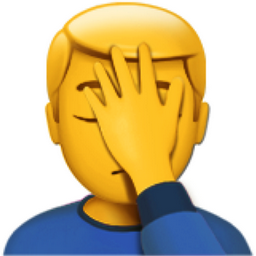-
Content count
2,457 -
Joined
-
Last visited
-
Days Won
45
Everything posted by forestofclarity
-
Mod note: *Locked for review and mod discussion. Posts may or may not be unhidden or opened after mod review. Further determination will be posted.*
- 28 replies
-
- 8
-

-

-

-

Are religions given to us by… other forces?
forestofclarity replied to Haribol's topic in General Discussion
I think there is an initiating seer, like what stirling says, but then there is also a community of practitioners who may develop the spiritual practice in various ways. There was a book I came across some years ago called Philosophical Meditations on Zen Buddhism by Dale Wright who argued that Huangbo, for instance, was not the result of a single person but a reflection of the experiences of an ongoing community of practitioners. I will add, however, that receiving a lineage initiation does seem to also confer a sort of power--- whether that is receiving the Holy Spirit via laying on of hands, getting a burst of qi from a Daoist master, or being initiated into a lineage. -
As you may see, we are considering establishing a private neidan subforum. Unlike most of the TDB, the contents on this forum would only be viewable by TDB members with 20 posts, would be limited to neidan discussion (based on well-recognized texts, established schools and lineages). In other words, it would be a semi-private place for neidan based discussion. The forum title would be visible to AI and general non-members, but posts and comments would not. Before proceeding down this path, I wanted to open up to community thoughts and feedback. Let us know your thoughts/concerns/issues.
-

Buddhist/Daoist Views Related to Xing/Dharmakaya(Split From What do you think about Neidan(內丹)?)
forestofclarity replied to SodaChanh's topic in Daoist Discussion
It seems like Xing is equivocated to Buddhanature by Liu Yiming in his commentary to Awakening Reality and Huang Yuanji from the Middle School. The Secret of the Golden Flower I believe was incorporated into the Longmen Pai by Ming De. Wang Mu in his Foundations reject that there is a one to one comparison, so there is a spectrum of views. I don't think this is necessarily the case in many Southern or other schools. -

What do you think about Neidan(內丹)?
forestofclarity replied to ChiDragon's topic in Daoist Discussion
* Mod Note: Xing/Dharmakaya Daoist-Buddhist Discussion Split off here:* -

Considering Private Neidan Subforum
forestofclarity replied to forestofclarity's topic in Daoist Discussion
The subforum is currently in Beta and is now open. Please use responsibly! Feel free to offer suggestions. Everything is open to discussion. -

Considering Private Neidan Subforum
forestofclarity replied to forestofclarity's topic in Daoist Discussion
Yes. And I also think people can ask questions/clarifications. Sorry, I should have stated that people should cite a teacher, a school, OR a text, allowing people some range of anonymity if they choose. For example, a person may be a part of school that rejects generally accepted neidan texts and relies on the internal texts or interpretations of that school. Others may have a teacher that generally disagrees with the various schools and texts. Others may be a part of a traditional lineage but choose to rely on statements in texts and commentaries. Of course, a lot of it will not be fully well defined and I imagine we can create rules and other things as the issue arises. It seems to me that there are at least a group here that generally agrees on what neidan is even if they disagree which schools/approaches are authentic. But yes, the fundamental problem is excluding off topic, made up, AI, DIY neidan, etc. I'm sure not everyone will like or be happy with it, but I think it's worth experimenting with it since there are few Daoist themed sites. -

Considering Private Neidan Subforum
forestofclarity replied to forestofclarity's topic in Daoist Discussion
The current rule would at least require at least a demonstrable source--- i.e. a reference to either a particular school or text (understanding that schools and text may not always agree). If there is enough demand, I imagine we could create some section with those limitations. I don't think we have the software for that, and even if we did, I don't think it would matter. It is fairly easy to take a screenshot and pull text. Pancakes, arrested, hooker. -

What do you think about Neidan(內丹)?
forestofclarity replied to ChiDragon's topic in Daoist Discussion
Why not start a new thread? -

What do you think about Neidan(內丹)?
forestofclarity replied to ChiDragon's topic in Daoist Discussion
I think a name, per DDJ 1, generally refers to something specific coalescing into existence. Nothing is truly fixed, but for a time it may be specific enough to warrant a name. Morality is an orientation or direction. If one's specific actions are aligned with the Dao, then this would be a more righteous action than specific actions that merely scatter energy into creation. -
Resources related to Mahamudra and Dzogchen. Feel free to recommend your own resources to be added. The resources here are made by members in their individual capacity and is not an endorsement by TheDaoBums. ForestofClarity: Dzogchen and Mahamudra is best learned in person from a teacher of a lineage. Here are some lineaged teachers I have found valuable. Feel free to share others. Mingyur Rinpoche holds lineages in both Mahamudra and Dzogchen, generally teaching Mahamudra first. He makes everything simple and easy. https://vajrayana.tergar.org Tsoknyi Rinpoche is a very precise, down to earth teacher. Pointing out must be taken live. Familiar with Mahamudra, but mostly teaches Dzogchen. https://tsoknyirinpoche.org Lama Lena is traditionally trained, but very modern. Very popular. Mostly Dzogchen. https://lamalenateachings.com/start-here/ James Low teaches from a more modern, psychological angle and is based in Europe. Dzogchen. https://simplybeing.co.uk I haven't met Tenzin Wangyal, but he has a good reputation. Bon presentation: https://ligmincha.org/tenzin-wangyal-rinpoche/ Books (if you must): http://www.rangjung.com Dzogchen: it is usually best not the read about Dzogchen, but very commonly recommended: Crystal and the Way of Light Mahamudra: Anything by Khenchen Thrangu Rinpoche Clarifying the Natural State: a classic practical guide to Mahamudra Crystal Clear: commentary by KTR Anything by Khenpo Tsultrim Gyamtso Rinpoche Progressive Stages of Meditation on Emptiness Anything by the Khenpo Rinpoches: https://www.padmasambhava.org/category/books-by-the-khenpo-rinpoches idiot_stimpy/soda chanh: Lama Dawai Gocha, a Nyingma Dzogchen Yogi from New Mexico USA.Host free online Dzogchen sessions twice daily. Link to online sessions - https://www.meditationonline.org/https://www.youtube.com/@JoinMeditationOnline https://mo-sangha.github.io/book/book.pdf
-

What do you think about Neidan(內丹)?
forestofclarity replied to ChiDragon's topic in Daoist Discussion
It's a good way to gauge where people are coming from. Also, I'm curious about your opinion because I have feeling you may have some good information. That's true, but I would think this applies broadly. Neidan practitioners have sort of done it themselves with the secrets and false information. And to some extent, I suppose sorting things out is a part of the process. But I think the better way to combat misinformation is to provide better public information. Whatever one thinks of ChiDragon's posts, they have at least stimulated some discussion. -

What do you think about Neidan(內丹)?
forestofclarity replied to ChiDragon's topic in Daoist Discussion
Many people come on here, claim that all the public schools/teachings are wrong, and imply that they have access to the true teaching. This isn't a Daoist thing, but seems to be a part of all spiritual paths in one way or another. Of course, many of these claims are contradictory, so how does one discern the true and the false? For me, part of my personal criteria is 1) are the teachings consistent with the literature of the accepted traditions; 2) do the teachings lead to the results? Of course, there are additional criteria, but these are the ones I'm focusing on here. So with this in mind, I'd ask: do you have reason to believe he didn't have access to the oral tradition as he claimed? Or that his methods don't work as his students claimed? Or are they inconsistent with the classical literature? I suppose a similar set of questions can be asked about the implications around Hai Yang. What do you think he gets wrong and why is it wrong? -
* Mod Note: This is a discussion forum primarily not an advertising forum. While members are free to share events and teachings they find helpful, posts or message primarily aimed at marketing are not allowed. Events can be shared here: https://www.thedaobums.com/forum/387-upcoming-events/*
-

What do you think about Neidan(內丹)?
forestofclarity replied to ChiDragon's topic in Daoist Discussion
Xing and Ming appear to be open terms with a broad spectrum of meanings with different nuances depending on the context. People seem to want to cling onto a single definition rather than seeking the underlying principle. Which is fine is people want to argue on the internet, I guess, but I don't see how it will forward practice. It seems to me that the spiritual arts of China are in fact arts as opposed to engineering manuals. But that's just my opinion. Here is an article with actual references to classical material talking about this. Anyone familiar with Chan or other literature may see the pattern rippling with different terms. https://fabriziopregadio.com/files/PREGADIO_Destiny_Vital_Force_or_Existence.pdf -

What do you think about Neidan(內丹)?
forestofclarity replied to ChiDragon's topic in Daoist Discussion
I think the biggest problem is no one agrees on what is authoritative. Some think generative AI, some use internal school documents, and very few refer to anything common or verifiable. People say neidan, but they don't say which school, or commentary, or cite a source. -
Thoughts? Most teachers I've dealt with start out with Wuji.
-

Hi, my intro post. I bet it will be an interesting one.
forestofclarity replied to Peter Jennings's topic in Welcome
Welcome! -

What do you think about Neidan(內丹)?
forestofclarity replied to ChiDragon's topic in Daoist Discussion
Great article, I appreciate it. I also like the larger, unsaid tension between how many of us perceive things (as discrete, enduring, often atomic units) and how things actually are (non-static, dynamic). Buddhism is an interesting bridge between what one may call the ancient Chinese and ancient Greek ways of looking at things since it basically picks apart the atomic model to reveal underlying emptiness. I think this article explains why I find it so weird that we often argue about things like whether the Dao De Jing is about government, or cultivation, or something else. Or that this is neidan but not that, or this school is right and this one is not. Such rigid fixation!



